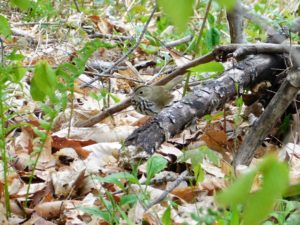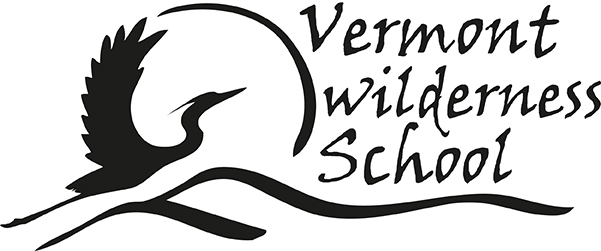Essentials of Resilient Community
Online Format for 2021-2022 Series

You’ve heard how it takes a village to raise a child. What does it take to raise a village?
For over 30 years, the Art of Mentoring network of schools and practitioners has been learning and sharing what it takes to cultivate healthy communities and healthy children. This experience feels even more important in our times when the world socially and environmentally is topsy-turvy. We know from long experience that deep nature connection lies at the core of health and capacity to navigate in rough waters. Conscious mentoring and cultural design are our most powerful tools for facilitating that connection. Since the late 1990s, the week-long Art of Mentoring training has been developed to provide an embodied experience of deep nature connection and community-based learning.
The Essentials of Resilient Community program, offered by Vermont Wilderness School and Amy Hyatt, takes you deeper into the practices and teachings of the Art of Mentoring, supporting you to grow as a mentor, leader, cultural creative, and designer of regenerative, resilient community – whether on a family, neighborhood, or regional scale.
This program is currently in a renewal process. Complete this short form to be notified when registration re-opens. Read on to learn more about what each of the 7 weekend workshops looked like in the past.
- Program Cost (financial aid available):
- $1150 for the entire series – save $145! (Full payment must be received by November 1, 2020)
- OR
- Single Weekends: $185
- Where: Your Home or Other Preferred Spot with good internet access for the three Zoom Calls a Day.
- When: 9am-5pm ET Saturdays, 9am-4:30pm ET Sundays
- Who: Adults.
November: Mentoring, Learning and Human Development
Especially Good for Educators, Mentors & Parents
Mentoring with awareness of both the learning journey and human development is a very powerful combination. During this weekend we will be exploring human development through stages of life, and natural cycles of learning and skill building that occur throughout all stages of life. We will take a particular focus on stages of development in youth, to support our ability to mentor children and also understand our own life’s journey more deeply. We’ll then use these perspectives to build our mentoring toolbox, including refining our ability to follow and support our students’ development, and understanding what we as mentors can do to support transitions into new stages of learning and life.
December: Transforming Grief, Connecting with Ancestry and Tapping Our Creativity
In all of our backgrounds, we can find ancestors who lived in land-based communities, deeply connected to the natural world and to their cultural traditions. Threads of these ancestral traditions have survived to the present day all over the world, offering us gifts that can help guide us in living our lives today. Those gifts can give us access to powerful new creativity for living fully as mentors, community members, and citizens of the world. Tied in with those gifts is also the accumulation of ancestral losses and wounds that we are called to help heal and transform. Over this weekend we will honor our ancestors, connect with our gifts and creativity, and work with the grief that often arises in reclaiming our ancestry, acknowledging not-so-life affirming actions, and deepening our connection with the Natural World.
January: Aliveness & Embodiment in Mentoring & Leadership
Through long-term mentoring in nature connection, powerful qualities can emerge in children and adults – childlike happiness, empathy, capacity to be truly helpful, and much more. These are qualities that the late Lakota elder Gilbert Walking Bull told us, “My grandfather told me to look for these qualities in people. They are the signs of leaders. I see these qualities in these young people spending all this time out here in the woods with you all.” We have found that engaging in the core routines of nature connection and mentoring support these qualities arising in everyone! In this weekend, we will be looking at these embodied qualities, the precursor indicators to their emergence, and how we can use these as measures and indicators of our work as mentors…and for our own journeys as Human Beings.
February: Renewal of Creative Path
The hibernation of winter is an ideal time for reflecting on the past and present and dreaming the future. Renewal of Creative Path is a powerful practice of assessing our past and present and looking to our future – setting intentions for what we want to cultivate in our lives and what the world is calling us to do and be. The Renewal of Creative Path process was developed by Jon Young and the 8 Shields Institute based on winter practices of reflection and renewal from many different cultures around the world. This weekend will guide participants through a Renewal of Creative Path process for our personal lives, and also look at using this critical practice for renewal and regeneration of projects, programs, and workplaces.
March: Designing with Natural Cycles for Creativity & Community
Especially helpful for educators and community organizations.
Attuning ourselves to the natural cycles of life builds vitality and resiliency in ourselves and our communities. We can also deliberately design how we work, play, and learn together based on cycles found in the natural world we are embedded in. Over this weekend we will be exploring how to use natural cycles as a guide for designing aspects of our community and work lives. We will especially pay attention to what we have each noticed about how community and work life goes awry when we neglect certain aspects of Natural Cycles – and look at how to bring the neglected aspects back into our lives.
April: Practices for Peacemaking and Restorative Relationships
Especially helpful for everyone!
Conflict and dissonance are a natural part of ecosystems and human life…and very widespread in our world today. Creativity and new solutions can emerge out of these conflicts when the system around them is healthy. We are all familiar with the results of unhealthy conflict – the hurt, disconnection, and violence that can be found in the news and throughout the world. Over this weekend, we will be looking at different cultural practices for peacemaking and restoring relationships when conflict results in disconnection, as well as practices that can help guide conflict towards greater health, creativity, and connection.
May: Core Routines for Being Fully Alive & Nature Connected
Especially helpful for educators…and everyone!
Just as drinking water, eating, and sleeping support our health and well-being, the Core Routines of Nature Connection foster day-to-day health and aliveness. Numerous studies over the past 30+ years have documented how daily time in nature enhances our learning and healing capacities, reduces stress, and can provide insight and creativity in whatever we are doing in our lives. For the final weekend of Essentials of Resilient Community, we will delve into many of the Core Routines of Nature Connection, how we can foster these routines in our daily lives, and how we can mentor and inspire others in these practices. Spring is one of the best times to explore and strengthen these routines when it’s warm outside and life is bursting forth!
Program Director & Facilitator – Amy Hyatt
 Since the 1990s, Amy has had an aim to find ways for all of us to journey into deeper, fuller relationship with ourselves, with nature, and with communities that support transformative learning and healing. Amy found a home for this work at Vermont Wilderness School and the Art of Mentoring regional workshop where she experienced a cultural basket weaving together many life-affirming practices she had worked with previously– a teaching bundle that is continually growing and evolving as more and more people bring their insights and experience to the learning community. Amy has been working with VWS in many capacities since 2001 from youth instructor to adult instructor, from Office Assistant to Executive Director. She is a presenter and trainer at the Art of Mentoring workshop in Vermont and other locations since 2006 including Ontario and the UK.
Since the 1990s, Amy has had an aim to find ways for all of us to journey into deeper, fuller relationship with ourselves, with nature, and with communities that support transformative learning and healing. Amy found a home for this work at Vermont Wilderness School and the Art of Mentoring regional workshop where she experienced a cultural basket weaving together many life-affirming practices she had worked with previously– a teaching bundle that is continually growing and evolving as more and more people bring their insights and experience to the learning community. Amy has been working with VWS in many capacities since 2001 from youth instructor to adult instructor, from Office Assistant to Executive Director. She is a presenter and trainer at the Art of Mentoring workshop in Vermont and other locations since 2006 including Ontario and the UK.
Her background is varied and includes undergraduate studies in cross-cultural communication through the arts; graduate studies in “Facilitating native Sense of Self & Place in Children”; graduate of the VWS Instructor Apprenticeship Program with Mark Morey; Kamana Naturalist Program graduate; Level 2 Tracking Apprenticeship Graduate with White Pine Programs; Nidan (2nd Dan Black Belt) in Aikido (USAF); graduate of the Guild for Spiritual Guidance; and certified in Wilderness First Aid. Amy has been working professionally in community building and empowerment projects since 1998.
She can be reached by email at Hyatt@VermontWildernessSchool.org
